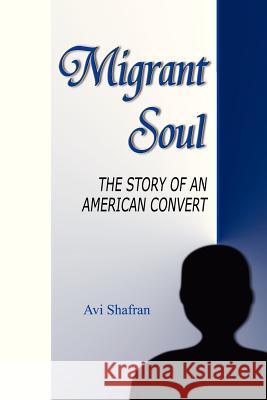Migrant Soul: The Story of an American Convert » książka
Migrant Soul: The Story of an American Convert
ISBN-13: 9781478215233 / Angielski / Miękka / 2013 / 184 str.
A man of African and Native American ancestry would seem an unlikely candidate for conversion to Judaism ? especially for becoming an observant Orthodox Jew. And Abel Gomes wouldn't ever have struck anyone as a radical or unpredictable person. On the contrary, he has always been thoughtful, calm, intelligent and focused, not someone given to rash decisions or susceptible to mystical compulsions.
Abel's determination to become a Jew emerged slowly, nurtured by a relentless logic that led him to regard his Catholic upbringing with intellectual discomfort ? and by his marriage to a Jewish woman, although one not at all interested, at least at the time, in exploring her own religious heritage.
Ariella, who had been raised by secular parents, was entirely comfortable with being Jewish only in a cultural sense, and, as her marriage to a non-Jew testified, felt unconstrained by religious rules.
In fact, her husband's growing interest in her ancestral heritage only irked her at first. If Abe's ethnic roots were an unlikely impetus for him to explore Judaism, Ariella's self-identity as a ?cultural? Jew added to the unlikelihood that the couple would one day become committed Orthodox Jews.
But the unlikely sometimes comes to pass, and the story of the young couple's journey to Orthodox Judaism is recounted in Migrant Soul: The Story of an American Convert.
Abel's interest in Judaism led Ariella to first humor him and eventually join him on his quest to go from affiliation with an Indian tribe to membership in the Jewish one. The couple's journey led them to Reform and Conservative Jewish communities, and finally, to the Orthodox one.
Abel and Ariella quickly came to realize that Reform Jewish theology has redefined Judaism to the point where it has more in common with American political and social liberalism than with the foundational tenets and practices of Jews through the centuries. That was not what they were searching for.
And so, with Orthodoxy as far from their minds as Buddhism, the two seekers gravitated to the Conservative movement, which claimed fealty to the Jewish past even as it embraced the vibrant cultural and intellectual present.
With time, though, they became disappointed by that segment, too, of the contemporary Jewish world. It seemed to offer more lip service than true dedication to Jewish ideas and practices, and differed from the Reform community more in quantity of Jewish practices than in quality of fealty to traditional Judaism. Moreover, despite Abel's Conservative conversion and the welcome he received from Conservative Jews, he found that his unusual background did not insulate him from being regarded by Conservative Jews, despite their progressive stances in other realms, as an outsider.
Even as they became active members of a Conservative congregation, Abel and Ariella began to interact with members of the Orthodox community in the city where they lived.
And those interactions, recounted in Migrant Soul, empowered by the couple's increasing realization that conversion to Judaism was more than a ceremony ? that becoming a Jew meant becoming a Jew, an actual part of the Jewish people ? led to Abel's decision to undergo a conversion that met the strict standards of halacha, or Jewish religious law. Neither the process leading to that point, nor the conversion rite, nor its aftermath were easy. But Abel and Ariella were determined, and succeeded in becoming not only fully observant of Jewish religious law, and not only active and essential parts of an Orthodox community, but inspirations for countless Jews ? both those who know them personally and those who became acquainted with them ?at a distance, ? through the pages of Migrant Soul.
Zawartość książki może nie spełniać oczekiwań – reklamacje nie obejmują treści, która mogła nie być redakcyjnie ani merytorycznie opracowana.











